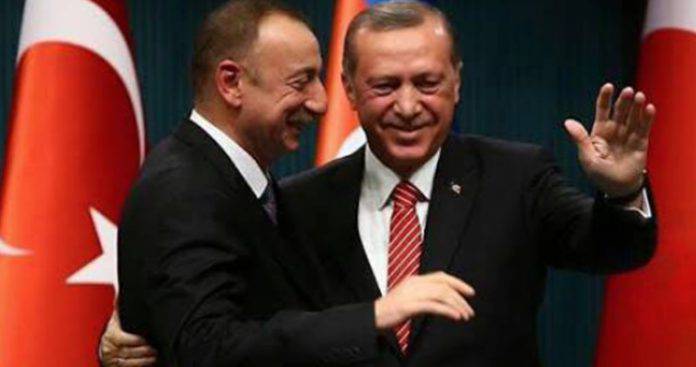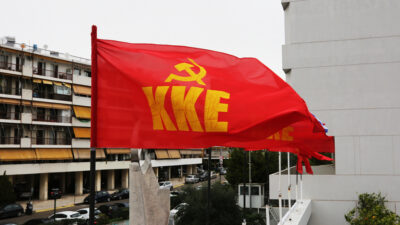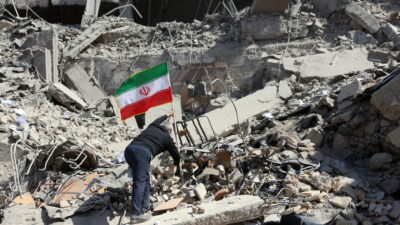Zacharias Michas: Why has Erdogan given the green light to the Azeris at this time
28/09/2020
The sudden escalation in the Nagorno-Karabakh region is a development linked to the situation in the Eastern Mediterranean and could affect Greek national interests. What connects the two “theaters” of international crisis is the involvement of Turkey. And this is beyond the realization of the destabilizing role Turkey is playing in the geopolitical regions involved.
The future of the Turkey-Russia “strategic alliance” will be judged in the region. Consequently, the developments are of particular importance for Greek diplomacy. The Aliyev regime in Azerbaijan would not have moved militarily against the Armenian enclave in Nagorno-Karabakh if Ankara had not given it the green light.
The Azeri President’s pro-Turkish remarks on the occasion of the presentation of the credits of the new Greek ambassador to Baku, reveal the degree of alignment of Azerbaijan’s foreign and military policy with the strategic planning of the Erdogan regime.
The Azeri military offensive against Nagorno-Karabakh is de facto involving Moscow, as the Caucasus region is of the highest strategic importance for Russia’s security because it is considered geopolitically its “soft underbelly”. In the Caucasus, the interests of Moscow and Ankara are in conflict, as they are in Syria and Libya.
The importance of the Caucasus in Russian-Turkish relations
The Russians have always sought a balance by dealing with the Muslim populations living in the Caucasus states, which are part of the Russian Federation. On the contrary, Turkey seeks to win the hearts and minds of the Muslim populations of the Caucasus, but also of Central Asia, in the context of the declared pursuit of decisive influence over the Muslims of the wider region, especially in the countries with Turkic populations.
The reference to Central Asia is appropriate to show the extent of the potential confrontation between Turkey and Russia. This is exactly what makes their “strategic alliance” a witticism, if viewed on a historical basis and based on the outbreaks of conflict in which the interests of the two countries are divergent.
What is at stake in the Putin-Erdogan relationship is rather an ad hoc conciliation effort that allows the escalation to be controlled when disagreements lead to a crisis in bilateral relations. Moreover, the limits of the strategic negotiation between the two countries have been revealed in the Crimean issue, with Turkey rhetorically supporting the Tatars, and condemning the secession of the region from Ukraine and its integration into Russia.
Of course, Ankara has been using the mechanism of consultation with Moscow in recent years in its attempt to strengthen its position vis-a-vis the United States and within NATO in “theaters” of Western interest. It believes that in this way it acquires greater bargaining power, with the aim of extracting benefits from its (in name only) Western allies. The threat that Erdogan leaves hovering for a more decisive embrace of Turkey with Russia has this purpose as well.
However, all indications are that Ankara’s policy has reached its limits, as it has provoked strong counter-coalitions that threaten Turkish interests. The United States is making moves and statements of high symbolic values in areas of vital Turkish interest that would have been unthinkable in the past. These are moves that, at least, give the impression of a slow process of reviewing fixed geostrategic assumptions, on which Washington’s strategy in the Mediterranean region has been based.
Erdogan is trying to “remind” everyone of his value
In this new regional environment, the pressure on Turkey has increased. As a result, the doctrine of the “Blue Homeland” that has infuriated almost all the countries of the Eastern Mediterranean, not just Greece and the Republic of Cyprus, is in danger of being annulled in practice.
The outbreak of the Azeri attack in Nagorno-Karabakh serves Turkey’s tactics in the Mediterranean region, no matter how incomprehensible it may seem on a first level. It directly affects Russian interests in the Caucasus. It should be noted that Russian forces are stationed in Armenia. For Yerevan, the Russian umbrella is vital.
That is why he was concerned about Moscow’s efforts to strengthen relations with Baku by selling arms to it and calling on it to coordinate energy issues that are crucial to both countries. The fact that these diplomatic efforts have yielded few results confirms that for the Russians their relationship with Armenia is a priority, as it also confirms that for the Azeris the absolute priority is the relationship with Ankara.
It is reasonable, then, to assume that Ankara may have given the green light to the Azeris to attack, considering that this will revive the geostrategic value of Turkey as a bulwark against Russia in Western thought and as an effective “observatory” of the Caucasus region. Ankara will also benefit from the fact that the crisis will de facto worsen Moscow-Baku relations, opening the door for the Azeris to re-engage with Turkey through Turkish mediation.
In this way, Turkish diplomacy hopes to halt the anti-Turkish dynamics that have developed in the American political and media system. It also hopes to weaken Western reactions when Ankara promotes illegal (under international law) claims against, in particular, the Republic of Cyprus and Greece.
The above alternative interpretation of Turkish involvement in the Azeri-Armenian conflict is certainly not the main cause of the conflict. The conflict stems from the local war of the 1990s and the de facto effects it has had on the map. However, the fact that the conflict is being precipitated at the present time is due to the Turkish aid to Azerbaijan, which is obviously given, because Erdogan considers that it serves his own plans.





